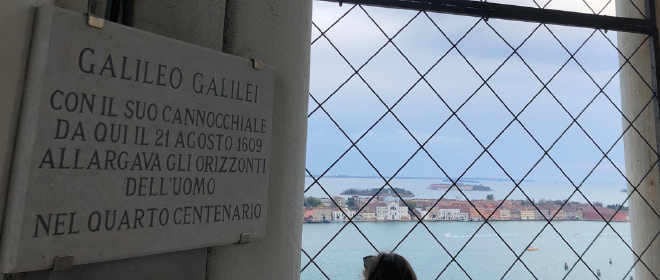Looking Back to Move Forward: The Power of Scientific History
Table of Contents
Scientists are always pushing forward, racing to make the next breakthrough. But sometimes the best way forward is to look back at your own field’s history.
This isn’t just a nice idea—it’s crucial for good science. In 2015, researchers Casadevall and Fang made this point in Infection and Immunity.1 They showed how understanding past discoveries and mistakes helps shape better research today. Without learning from history, we risk stumbling into the same old traps or missing promising new directions.
The real question is: what makes the history of science so valuable for research today?
When Good Science Hits Dead Ends: Learning from History’s Obstacles #
Our drive for scientific truth often runs up against an uncomfortable reality: even the best ideas don’t succeed on their own merits. The path to discovery is shaped by the social and historical forces of the time—a fact that Thomas Kuhn explored in depth in The Structure of Scientific Revolutions.2
History gives us plenty of examples of this pattern. Take Ignaz Semmelweis, who discovered that doctors were causing deadly infections in maternity wards through poor hygiene. Despite clear evidence that his methods saved lives, the medical establishment rejected his findings. Powerful figures destroyed his career simply because his ideas challenged their authority.

Or consider the story of Galileo—often portrayed as a simple clash between science and religion. The reality is more complex. His ability to challenge Church doctrine actually depended on political protection from the Venetian Republic. Without that shield, his revolutionary ideas might never have spread.3
Even today, scientists can fall into what Stephen Toulmin called the ‘Alexandrian Trap’—getting so caught up in the formal structure of arguments that they miss the actual substance. It’s a pattern that keeps repeating throughout history.
These stories teach us something crucial: scientific progress isn’t just about having good ideas. Those ideas have to navigate through a maze of social forces, power structures, and personal agendas—forces that are still very much alive today.
The Blind Spot in Scientific Training #
While history offers crucial lessons for scientific progress, most scientists are trained to see it as irrelevant to their work.
Look at how science is taught today. History gets reduced to a handful of entertaining stories—Newton’s apple, Fleming’s moldy petri dish—rather than being treated as a meaningful part of scientific training. The context behind major discoveries gets lost, and with it, valuable insights about how breakthroughs actually happen.
The contrast with other fields is striking. Take law, where understanding historical precedent isn’t just encouraged—it’s essential. Lawyers spend years studying past cases and decisions because they know these shape current practice. But in science, we often present discoveries as isolated facts, stripped of the messy, human process that led to them.
This dismissal of history comes at a real cost. When we ignore how past scientists navigated their breakthroughs and setbacks, we miss chances to learn from their experiences. The very lessons that could help us innovate—or avoid costly mistakes—get lost in our rush toward the new.
The Case for Forgetting: Does History Hold Science Back? #
Some scientists would argue we’ve got it exactly backwards—that science actually thrives by ignoring its history.
Their reasoning is straightforward: science isn’t like law or medicine. It’s about pushing into the unknown, and too much looking backward might just slow us down. By focusing purely on what’s ahead, they argue, we can challenge old assumptions more freely and push boundaries more boldly.
This view is deeply rooted in how modern science works. Take the principle of falsification: we test hypotheses against evidence, plain and simple. Historical context doesn’t make your experiment any more or less valid. In fact, stripping away the historical baggage might help us stay objective and focused on the data right in front of us.
But this “forward-only” approach comes with hidden costs. When we treat science as just a mechanical process of testing hypotheses, we lose the human element—the stories of inspiration, persistence, and even luck that often spark breakthrough insights. More importantly, we might miss crucial patterns in how scientific understanding actually develops.
The real challenge isn’t choosing between looking forward or backward—it’s finding the right balance between the two.
The Path Forward: Integrating History into Science #
After weighing both sides of this debate, one thing becomes clear: we need a better balance between honoring the past and pushing toward the future.
Casadevall and Fang hit on something crucial—science doesn’t exist in a vacuum. Each discovery, each breakthrough, happens within a web of social and historical forces. By bringing history back into science education, we can help future scientists navigate these forces more effectively.
What would this actually change? First, scientists would better understand how social and cultural factors shape their research—just as they shaped Galileo’s and Semmelweis’s work. Second, they’d gain practical insights from past mistakes, making the scientific process more efficient. But perhaps most importantly, they’d see that breakthroughs rarely come from isolated genius. Instead, they emerge through collaboration, persistence, and learning from failure—patterns that repeat throughout history.
There’s something else too: historical awareness makes better scientists. It helps them recognize overlooked contributions, especially from marginalized voices. It reminds them of their ethical responsibilities—lessons we’ve often learned the hard way. And it shows them that science isn’t just about data and results—it’s about people, stories, and the messy process of discovery.
We don’t need to choose between looking backward and moving forward. By understanding our history, we can create more thoughtful, ethical, and innovative science—not despite the past, but because of it.
Casadevall, A.; Fang, F. C. (A)Historical Science. Infect. Immun. 2015, 83 (12), 4460–4464. https://doi.org/10.1128/IAI.00921-15. ↩︎
Kuhn, T. S.; Hacking, I. The Structure of Scientific Revolutions, 4th ed.; University of Chicago Press: Chicago, IL, USA, 2012. ↩︎
Rossi, P. The Birth of Modern Science; The making of Europe; Blackwell: Oxford, UK, 2001. ↩︎